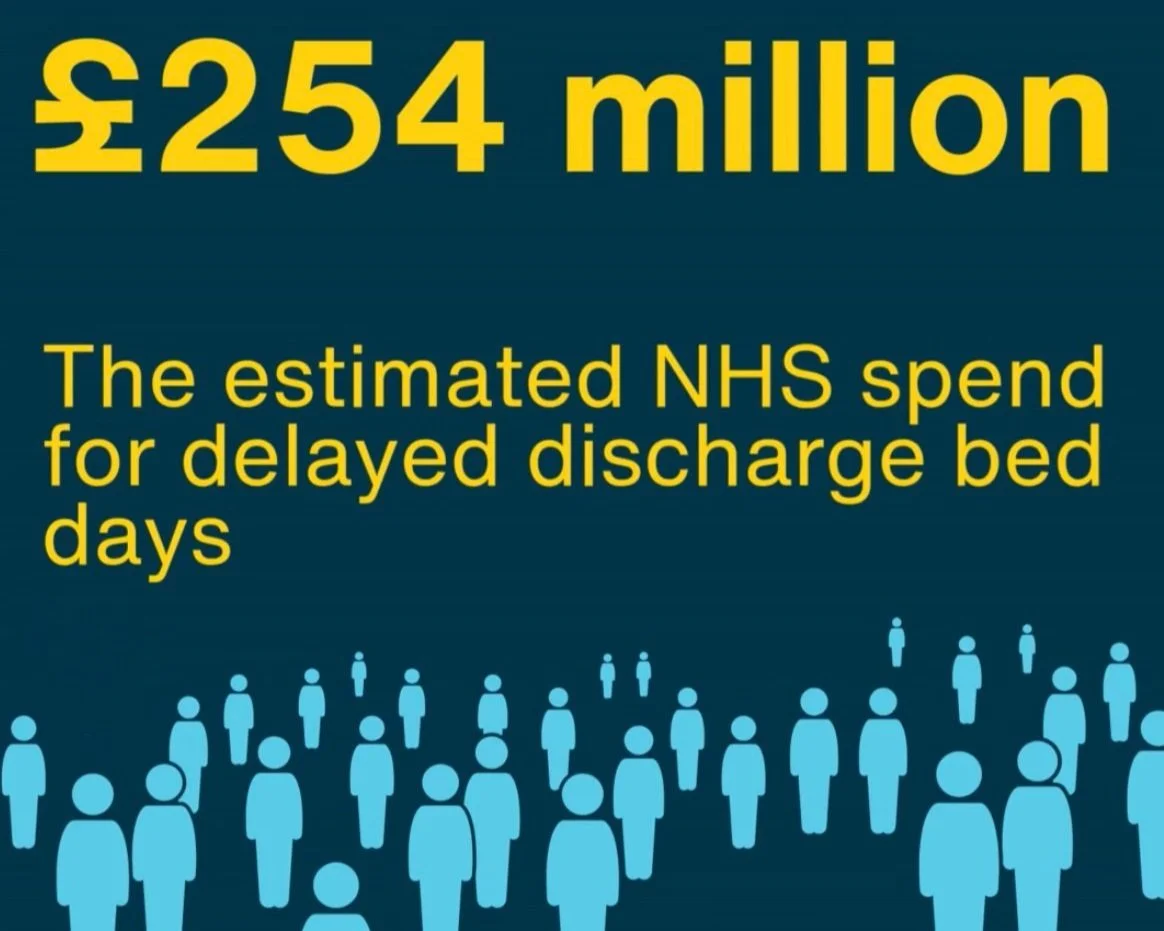Not a place like home: why we must rethink mental health placements.
At Positive Support Group (PSG), we work every day with people who have some of the most complex behavioural and wellbeing-related needs in the country. And every day, we see the consequences of a system that still too often places people in the wrong setting, far from home, and for far too long.
We’ve recently conducted some analysis of NHS reported data, which explores the scale of these issues and what needs to change.
The scale of the problem
Long hospital stays, and inappropriate out of area placements (OAPS) continue to present significant challenges for families and for NHS organisations. Both hospital stays and OAPs can isolate people from loved ones, sever community ties and often contribute to a cycle of instability and trauma. The personal and financial costs are substantial not just for families who may need to take time off work or travel long distances, but for the entire health and social care system.
Our latest analysis shows that:
· Based on 647,727 OAP bed days, we can estimate the total national cost to be £388,636,200 since the start of 2024
· Based on 636,597 days of delayed discharge, we can estimate the cost of delayed discharge since the start of 2024 to be £254,638,800.
These concerning numbers reflect real-life consequences: children missing out on education, families kept apart, and individuals facing prolonged disruption. Behind each statistic is a person - a young adult stuck in hospital weeks after they’re ready to leave, a parent making long journeys just to visit, a child placed far from home without access to school or familiar support systems.
A postcode lottery
As with many aspects of health and social care, where a person lives can have a significant impact on the care they receive. In some areas, we noted that average OAP stay was more than 200 days. In others, it was under 30. This disparity isn’t just frustrating, it’s unfair, and speaks to the scarcity of community services in many areas of the country.
We can also see that the burden falls heaviest on those in the most deprived areas. People living in communities with the highest levels of deprivation are three times more likely to be placed away from home than those from less-deprived areas.
Discharge is delayed and so is recovery
Our analysis shows that the average stay in an acute mental health bed has increased to 58 days—well above the NHS target of 32. Since the start of 2024, delayed discharges have accounted for 636,597 occupied mental health bed days. These delays reflect wider pressures across the system, with significant implications for patient recovery and overall capacity.
At PSG, we don’t talk about “discharge” as a box to tick. We talk about transition. We plan for a person’s first hour, first week, first month out of hospital because that’s when success is built and because we stay involved beyond the move, we help prevent readmission and keep people connected to their communities.
In one recent case, we worked to safely discharge an autistic child who had spent over 120 days in hospital, with no medical need to be in such high-cost care. In this instance we worked closely with NHS and local authority partners to swiftly and safely discharge them from hospital to a setting that best suited their needs.
Better is possible and already happening
Despite these challenges, we know that better is not only possible, but also already happening in pockets across the country. We see it every day in our work with NHS and local authority partners. We see it when investment is made in training, when services are built around people, and when we listen to families from day one.
But isolated success isn’t enough. We need a national commitment to community-based care where what works locally is scaled and sustained nationally.
This means:
· Funding early intervention, especially in schools.
· Building multidisciplinary teams that don’t break apart when a case gets complex.
· Commissioning services that think long-term, not just short-term discharge targets.
From Crisis to Prevention
The current model of care is reliant on costly placements and prolonged delays which is not only financially unsustainable, but it also fails to deliver the outcomes people deserve. These challenges are not inevitable; they reflect decisions about where and how we invest.
There is a better way forward. By shifting our focus from crisis response to early intervention and community-based care, we can build a system where support is timely, effective, and rooted in the everyday environments where people live and thrive. Investing in people and not just placements means prioritising services that prevent escalation, reduce hospital admissions and help individuals stay closer to home.
At Positive Support Group we are actively contributing to this shift, alongside many others across the sector who are working toward more sustainable, community-focused mental health care. By aligning vision with action, we can help shape a system that better meets people’s needs now and in the future.


